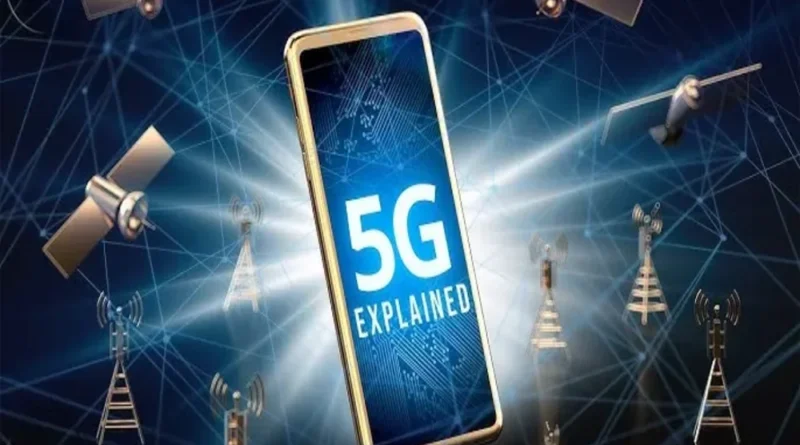The 5G Standoff squaringthenet Reshape Global Digital Rights
The introduction of 5G technology marks a significant turning point in the evolution of global communications. With its unparalleled speed, low latency, and potential to connect billions of devices in real-time, 5G has stirred excitement across industries, governments, and consumers. However, the rollout of 5G has also sparked contentious debates about privacy, data security, national sovereignty, and global digital rights. At the heart of this global struggle lies SquaringtheNet, a digital rights movement aiming to reshape how 5G impacts privacy, access to information, and the broader internet landscape.
The Promise and Pitfalls of 5G
5G technology promises to revolutionize various sectors, from healthcare to transportation, by enabling rapid data transfer and boosting the Internet of Things (IoT). Its capabilities range from enhancing autonomous vehicle systems to providing faster and more reliable telemedicine services. However, this cutting-edge technology comes with substantial concerns. One of the most debated issues is the concentration of power in the hands of a few large telecom companies and governments. As 5G infrastructures are being built, questions arise about who controls the data flowing through these networks, and how this could affect digital rights.
1. The Global Race for 5G Control
The 5G standoff isn’t merely about technological superiority—it’s also about geopolitical influence. Countries like the United States, China, and members of the European Union are in a race to develop and control 5G infrastructure. This competition is driven by the understanding that the nation controlling 5G will have a significant edge in everything from economic competitiveness to military might.
However, this global 5G race has left digital rights hanging in the balance. The involvement of governments in 5G networks has raised concerns about surveillance, censorship, and data misuse. In authoritarian regimes, there is the added worry that 5G could bolster the state’s ability to monitor citizens and suppress free speech. In more democratic societies, while regulations are often in place, the tension between national security and personal privacy rights continues to grow.
2. SquaringtheNet: Advocating for Fair Digital Rights
Amid these concerns, SquaringtheNet emerged as a global digital rights movement seeking to level the playing field. Founded by digital rights advocates, SquaringtheNet’s mission is to ensure that the digital future shaped by 5G technologies remains inclusive, transparent, and respects fundamental human rights.
SquaringtheNet believes that the development and deployment of 5G should prioritize protecting user data, ensuring free access to information, and preventing monopolistic control over this next-generation technology. They advocate for clear regulations that put people’s privacy and rights at the forefront of any 5G policy. The movement emphasizes that digital rights should not be sacrificed for the sake of innovation or security concerns, especially as surveillance technologies grow more sophisticated.
3. Data Privacy and Surveillance Fears
One of the main concerns in the 5G standoff is the potential for mass surveillance. 5G networks, with their ability to connect billions of devices, will generate an unprecedented amount of data. From personal conversations to medical records, everything can be transmitted faster and more efficiently. However, who has access to this data, and how it’s stored and used, remains a significant worry.
SquaringtheNet is particularly focused on ensuring that individuals’ data privacy is respected, regardless of the country they live in. The movement opposes the development of “backdoors” in 5G systems that would allow governments or corporations to access private information without consent. They argue that allowing such access could lead to unchecked surveillance, abuse of power, and a degradation of digital freedoms.
4. National Sovereignty vs. Global Digital Rights
The 5G standoff also raises critical questions about national sovereignty. Some countries, particularly the U.S. and China, are investing heavily in 5G not only for domestic use but also for export. The export of 5G technologies and infrastructure gives these countries considerable influence over the digital landscape in regions that adopt their systems. Countries reliant on foreign 5G networks may find themselves vulnerable to espionage or data theft, compromising their sovereignty.
5. The Future of Digital Rights in a 5G World
As the 5G rollout continues, the standoff between tech companies, governments, and digital rights advocates like SquaringtheNet is likely to intensify. The future of global digital rights will depend on finding a balance between harnessing the potential of 5G while ensuring that it is developed in a way that respects privacy, freedom of expression, and access to information.
The ongoing debates surrounding 5G provide an opportunity to reexamine digital rights in an increasingly connected world. SquaringtheNet insists that digital freedom should not be an afterthought in the rush to implement 5G infrastructure. Instead, it must be a guiding principle that shapes the policies governing this revolutionary technology.
Conclusion
The 5G standoff is not just about technology—it’s about who will control the flow of information in the digital age. SquaringtheNet’s advocacy for global digital rights is a critical voice in this debate. By pushing for greater transparency, privacy protections, and regulations that favor the public good, SquaringtheNet aims to ensure that the global digital landscape, shaped by 5G, remains open, fair, and free.
As 5G continues to develop, the need for a global digital rights framework has never been clearer. While the promise of 5G is vast, so are the challenges it presents. The balance between innovation and rights is delicate, but SquaringtheNet is working to ensure that in the rush to build the future, digital rights are not left behind.
FAQs About The 5G Standoff and SquaringtheNet
- What is SquaringtheNet?
SquaringtheNet is a global movement advocating for digital rights and privacy protections in the era of 5G technology. - Why is 5G controversial?
5G is controversial due to concerns about data privacy, surveillance, and the potential for monopolistic control by tech companies and governments. - How does 5G affect digital rights?
5G increases the potential for mass surveillance and data misuse, which could infringe on privacy and freedom of speech. - What is the role of governments in the 5G standoff?
Governments are heavily involved in 5G development, raising concerns about national security, surveillance, and control over data. - What does SquaringtheNet aim to achieve?
SquaringtheNet seeks to create a global digital rights framework that protects privacy, promotes open access, and ensures fair use of 5G technology.




